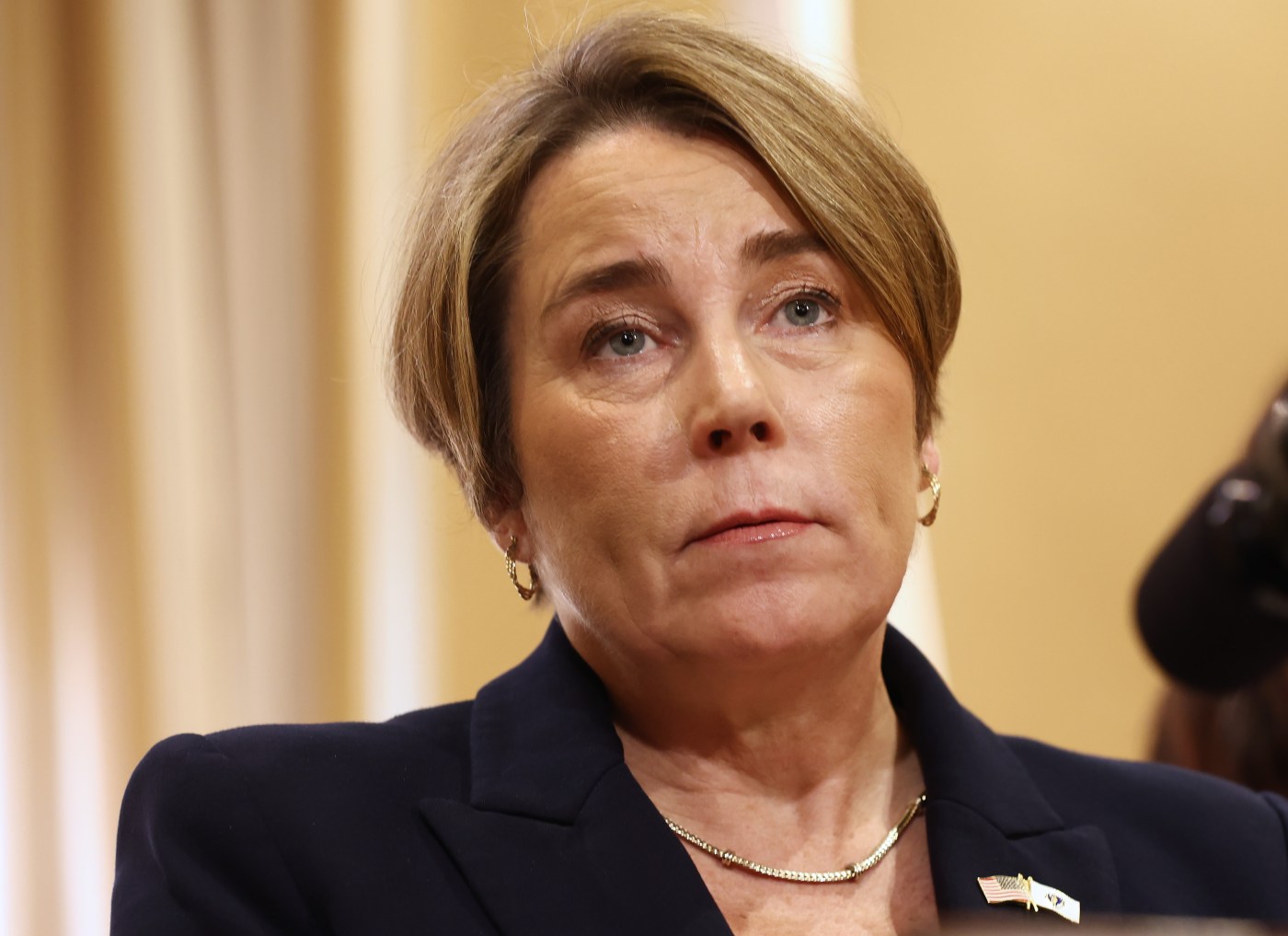
Gov. Healey looks to slash families’ time in state-run shelters, phase out costly hotels
Gov. Maura Healey’s administration plans to cut back the amount of time migrant and local families can stay in state-run shelters from nine to six months, phase out the use of costly hotels and motels, and request more money to fund the system through the end of the fiscal year.
In a sweeping announcement Friday, Healey said the changes were aimed at reducing the costs of the emergency family shelter system, which is projected to run Massachusetts taxpayers more than $1 billion in fiscal year 2025 and has become strained amid an influx of migrants.
Lt. Gov. Kim Driscoll, who led a commission tasked with studying the system, said changes come as the state is seeing a slowdown in arriving migrants and as only 15 to 18 families are seeking shelter each day, of which 65% are “long-term Massachusetts families.”
“This new model is really designed to incorporate a prioritization and assessment upfront so we can get families on a pathway that’s more sustainable and more independent. We definitely need to lower costs, phase out the use of hotels, and put us in a position to ensure that we’re serving those who need it most,” Driscoll told the Herald Friday morning.
Two options
Starting on Dec. 10, families who gain access to the state-run shelter system will have two options.
A “rapid shelter track” will offer a 30-day stay for those that “have strengths and needs that position them to rapidly find self-sufficient permanent housing” and a “bridge shelter track” will give “high-risk families and those with more complex needs” an expected six months.
State officials plan to file a spending bill, though Driscoll did not say when, that will ask the Legislature to formally reduce the time families can stay in state-run shelters from nine to six months and change extension criteria.
Previous efforts to cap time in shelters to nine months were met with pushback from advocates who expressed concerns about families’ ability to find housing after they reached their time limits.
Families will not be able to choose between the two new options and those that are given access to the month-long track will not be eligible for six-month stays, according to the Healey administration.
Driscoll said those rules are “pretty hard and fast.”
“The goal of this plan is to do a lot of assessment up front so we’re really understanding what the key challenges are. Families come into us with challenges, they also come into us with opportunities,” she said by phone.
Families with children or pregnant women who are placed on the month-long track will stay at overflow shelters, which Healey rebranded earlier this year as “temporary respite centers.” People at those sites previously could only stay for five days, though extensions were allowed.
“This shift is responsive to exit data trends and feedback from providers and is more aligned with the amount of time needed to exit to safe housing, especially when leases are involved,” the Healey administration said in a statement.
The Healey administration said the six-month track was largely created for women who have a late-term pregnancy or people with intellectual or developmental disabilities.
The changes attempt to prioritize shelter system services around “risk and need,” the Healey administration said.
“For example, if the parents are able to work, they will be better suited for the rapid shelter track because having a job and paycheck will help them move into stable housing. If a family has complex risks or needs, like a long eviction history or barriers to work, they may need more support to find permanent housing and so would be directed to the bridge shelter track,” officials said.
Healey also plans to phase out a wide network of costly hotels and motels that are helping boost the shelter system’s capacity. Stays at the sites can often run hundreds of dollars per night, the Herald previously reported.
The Healey administration said hotels and motels “have proven to be the most expensive shelter model and do not provide an ideal environment for long-term shelter to help families get back on their feet.”
“For example, many hotel rooms lack the space needs for services, which can be isolating and makes it more difficult for case management staff to engage with families,” the administration said. “As such, the administration will be phasing out shelters in hotels and motels throughout fiscal year 2025 and 2026 and shifting to a more cost-effective and supportive portfolio.”
Driscoll did not directly say if the administration plans to replace the capacity that will be lost when the hotels and motels are phased out but said officials are considering other “step-down housing models that might be appropriate.”
The changes to the system stem from a 38-page report the state commission chaired by Driscoll voted to approve earlier this week. The report did not offer specific recommendations but rather broad themes that were intended to guide future reforms.
The policy shifts also come as funding for the emergency shelter system is expected to run out in January without another infusion of cash. But Healey said she plans to file another spending bill that requests “sufficient” money to cover costs for the rest of the fiscal year.
The proposal, the Healey administration said, “anticipates using reserve funding to cover these costs, rather than impacting programs that are paid for in the annual budget.”
Driscoll said the “reserve funding” referred to an account filled with surplus dollars leftover from the pandemic.
“We’ve been using these one-time dollars that were in transitional escrow, and there were dollars transferred into there in anticipation, knowing that there were going to be additional costs within this program that are necessary,” Driscoll said.

